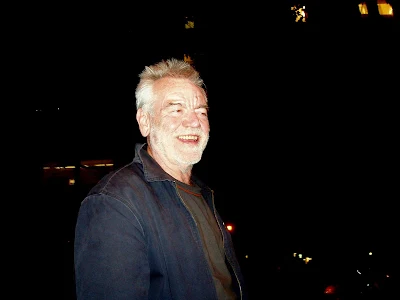
Wouldn't it be great if all those favourite movie scenes could be made into huge posters by uploading the image and then mounted so that you could choose how many sheets to print the job without having a city and guilds in Photoshop
Participatory media as marketing in action is just the job at Block Posters.
Remember to use the blank side of used paper if you can.


















.jpg)







So, earlier today I took a look at some stats for socialist media in the United States and I was surprised to see that imeem, a small media-sharing social-networking site that I stumbled across last week to use for posting the Danwei podcast was beginning to take root. They're at number four in the table below, and means I can now share a brilliant Tony Benn Podcast, plug a new socialist media and lay the groundwork for my Marxist media post which is designed to irritate the living hell out of people who drive gas guzzling Jags like the wonderfully erudite Rory Sutherland who writes beautifully on his blog.